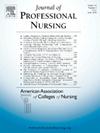A multi-theory approach to enhancing empathy, communication, problem-solving, and ethical decision-making in nursing students: A mixed-method study using creative drama
IF 2.9
3区 医学
Q1 NURSING
引用次数: 0
Abstract
Background
Empathy, communication, problem-solving, and ethical decision-making are crucial for nursing students to deliver holistic, patient-centered care. Traditional teaching methods may fall short, highlighting the need for innovative approaches like creative drama.
Aim
This study aimed to evaluate the effects of creative drama on the empathy, communication, problem-solving, and ethical decision-making skills of nursing students, guided by Kolb's Experiential Learning Theory and Bandura's Social Learning Theory.
Design
This study employed a Sequential Explanatory mixed-methods design, combining a quasi-experimental quantitative phase followed by qualitative interviews to deepen the understanding of the results.
Methods
The study involved 66 first-year nursing students: 32 in the experimental group (creative drama) and 34 in the control group (traditional education). Data were collected through pre- and post-tests using scales measuring empathy, communication, problem-solving, and ethical decision-making. Semi-structured interviews were conducted with selected participants from both groups to gather qualitative insights. Quantitative data were analyzed using t-tests, and thematic analysis was applied to the qualitative data.
Results
The experimental group showed significant improvements in empathy, communication, problem-solving, and ethical decision-making skills compared to the control group. Qualitative findings revealed increased reflective thinking and improved practical application of theoretical knowledge.
Conclusion
The intervention effectively enhanced nursing students' clinical skills. Both quantitative and qualitative results showed that creative drama improves their preparation for practice. Thus, integrating creative drama into the nursing curriculum is recommended.
用多理论方法提高护理学生的同理心、沟通、解决问题和道德决策:一项使用创意戏剧的混合方法研究
关怀、沟通、解决问题和道德决策对于护理专业学生提供全面的、以患者为中心的护理至关重要。传统的教学方法可能会有不足之处,这凸显了创造性戏剧等创新方法的必要性。目的以Kolb的体验学习理论和Bandura的社会学习理论为指导,探讨创造性戏剧对护生共情、沟通、解决问题和伦理决策能力的影响。本研究采用顺序解释混合方法设计,结合准实验定量阶段和定性访谈,以加深对结果的理解。方法对66名大一护生进行研究,实验组32人(创意戏剧),对照组34人(传统教育)。数据通过前后测试收集,使用测量共情、沟通、解决问题和道德决策的量表。从两组中选择参与者进行半结构化访谈,以收集定性见解。定量资料采用t检验,定性资料采用专题分析。结果与对照组相比,实验组在移情、沟通、解决问题和道德决策技能方面有显著提高。定性研究结果显示,学生的反思性思维增强,理论知识的实际应用也有所改善。结论干预有效地提高了护生的临床技能。定量和定性结果都表明,创造性戏剧提高了他们对实践的准备。因此,建议将创意戏剧融入护理课程。
本文章由计算机程序翻译,如有差异,请以英文原文为准。
求助全文
约1分钟内获得全文
求助全文
来源期刊
CiteScore
4.80
自引率
8.00%
发文量
153
审稿时长
52 days
期刊介绍:
The Journal will accept articles that focus on baccalaureate and higher degree nursing education, educational research, policy related to education, and education and practice partnerships. Reports of original work, research, reviews, insightful descriptions, and policy papers focusing on baccalaureate and graduate nursing education will be published.

 求助内容:
求助内容: 应助结果提醒方式:
应助结果提醒方式:


